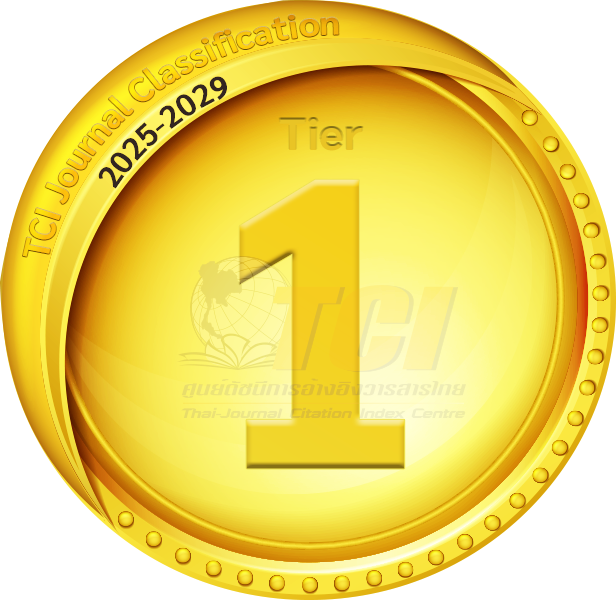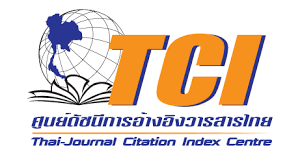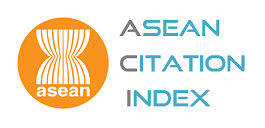Editor’s Note
Abstract
His Majesty the late King Bhumibol Adulyadej’s reign reaches its conclusion after an unprecedented 70 years of ruling the Kingdom of Thailand. His Majesty’s demise at the age of 88 brings a great abundance of tears, yet still millions of Thais are still in mourning phase for the loss of the revered King. The late King of Thailand is not only the longest reigning monarch of the world but is also acknowledged as the most hard-working monarch in the modern world history.
This journal is still in the remembering period of the late King’s death. Thus, if you look closely at the cover page of the journal, there are three items illustrated which are the late King’s items by which all Thai people know best that these items were used by the late King and had served the King throughout his 70 years tenure. To be precise, the late King always carries three things with him every time he makes an inspection tour of a rural area: a map (that is cut and pasted by himself), a camera, and a pencil with a rubber end cap. Furthermore, King Bhumibol Adulyadej was an avid photographer and was rarely seen without his camera.
There are also another two items depicted on the cover page. The toothpaste reflects the self-being of the late King who is a person very appreciative of life as he always uses his toothpaste until the tube is completely flat. There is also a drawing showing an aircraft, which is referring to the Thailand Royal Rainmaking Project that was initiated in November 1955 by the late King himself. The aircraft used in the project is shown on our cover. King Bhumibol Adulyadej played a handful of different musical instruments, including the saxophone, clarinet, trumpet and more.
Hence, many may wonder how are those items connected to the contents of this very much anticipated journal. The best answer to this question is that the King is an inspiration to us, the Thais especially as well as to the rest of the world. His Majesty’s charismatic yet fair leadership, alongside his soft touch to tackle the people’s heart and emotion, bring an idea that a journal needs to follow the late King’s approach in life: a life taking good care of others. A sacred living soul that during his Majesty’s life tried hard to make others live comfortably. The journal’s main objective, apart from becoming academic initiative, is also to provide a better world for people to live in by analyzing matters in different fields and subsequently trying to find solution and cure.
To be honest, this journal is a bit unique as it kickstarts its voyage with a lead article by Sompong Sucharitkul. Then only another seven (7) articles will come into the scene. The lead article is designed to provide such salient elements inherent in the formative process of the ASSOCIATION OF SOUTHEAST ASIAN NATIONS (ASEAN). The process will then turn its attention to the chronology of events and occurrences, leading to the establishment of the Association, the birth and growth of ASEAN and the progressive developments of this collectivity of national societies.
Later, seven different papers are presented despite the fact that the emphasis is more likely narrowing to a mutual field of study as five out of seven of them are in the criminology field. The second journal is an article written by Thamavit Terdudomtham, about a policy in Thailand. The latter is referring to the Marijuana policy, whereby the author aims to analyze the problems related to Marijuana policy in Thailand and to discuss the possibility for alternative marijuana decriminalization. The author brings to our attention the need to revise the current policy, as it is deemed to be costly and has been largely unsuccessful.
Second in the journal is about Arrest Warrant Alert System (AWAS) written by the duo of Jomdet Trimek and Jirabhop Bhuridej. The authors aimed to study the possibility of using the AWAS to arrest the offenders. In addition, they would also like to survey the user's acceptance through Technology Acceptance Model as well as to propose the guidelines to develop the efficiency of the AWAS to trace those fleeing offenders.
Cyberattacks happen throughout the world, yet India is not a place free from this type of terror. The author, Srirath Gohwong, reflects on the cyberattacks and digital economy in India during 2004-2015 by finding out the types and patterns of all cyberattacks in India during 2004-2015. He also investigates the relationship between Gross Domestic Product (GDP) of India and its relationship with the cyberattacks and later comes up with the comparison of the cyberattacks between India and Thailand during 2012-2015.
Another criminology paper is neatly written by the group of visionary authors led by Suppakorn Poonyarit, Sunee Kanyajit, Nathapon Sokantat, Patcharaphan Nakpong, and Noppawan Unmareng. The main discussion of the paper is about the world which has already evolved drastically so as the people resided inside it. Crime already becomes rampant due to the various pressures faced by the criminals. The authors focus not only on the people’s fear of crime, yet they also dig further on comparing people’s fear of crime aspect.
The fifth in the list revolves around such heated discussion about the stance or the political perception of the university students in Thailand based on the red and yellow rallies happened in the country before. Thus, Kittisak Jermsittiparsert as well as Maneerat Kitipatmontree go for the study and compare the political attitudes of university students who played prominent roles in the gatherings of People’s Democratic Reform Committee. The research is done by considering several individual factors such as their field of study, birthplace, parental occupation, and the latter income.
The sixth paper should be read in such peaceful mind as it touches about the critical acclamation of the history side. In this paper written by Tesfamhret Teklesenbet Haile, it attempts to produce a critical evaluation of the Colonial vs Secession argument on the Eritrean struggle for self-determination. By incorporating analytical qualitative approach, this article compares historical and contemporary facts with pertinent international instruments and finds out that the secession side is not well grounded. To be precise, this is one of the historical research that is a must-read, as it unravels bit by bit pertaining to such heated historical arguments that are not much deliberated nowadays.
Last but not least, an article from Shinto Teramoto and Yuriko Haga discusses a practical way to secure informed consent from contributors of big data in healthcare. The authors tried their best to find a practical way in which we can substantialize informed consent in the course of building big data in healthcare. In order to discuss this matter, the authors employed simplified social network models, as well as conducted intensive interviews with a group of practicing lawyers. Through this medium, the authors found that continuous diffusion of knowledge through hubs, which curate and disseminate newly developed knowledge, in information networks to citizens effectively assists contributors, builders and users of big data to give and gain substantial informed consent.
After all, that is why journals such as RJSH exist: to connect knowledge-seekers (learners) with producers of knowledge (researchers). As the editorial team, we see this as our job: sharing new knowledge, including alternative ways of perceiving the complex issues that all of our societies face on a day-to-day basis.
We welcome your comments and, of course, your manuscripts. Links to our manuscript submission site can be found at RJSH Online Submission and Review System: www.rsu.ac.th/rjsh. We look forward to hearing from you.
Sincerely,
Anek Laothamatas
Editor-in-chief

Indexed in


Search